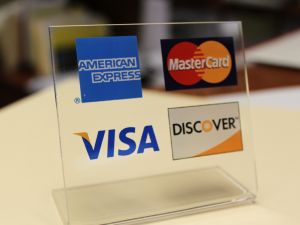 You may have heard the term FICO score before, especially if you have ever applied for a loan, but you may have little idea what it stands for or why it is important. FICO is often confused with a credit report, and while a FICO score does use your credit history to be calculated, it is quite different from a credit report. Below we will look at what a FICO score is and what you should know about it if you are every applying for a loan.
You may have heard the term FICO score before, especially if you have ever applied for a loan, but you may have little idea what it stands for or why it is important. FICO is often confused with a credit report, and while a FICO score does use your credit history to be calculated, it is quite different from a credit report. Below we will look at what a FICO score is and what you should know about it if you are every applying for a loan.
What is FICO?
FICO stands for Fair Isaac Co, which is the original name of the company that performs the FICO score. Today the company is simply known as FICO. Of course, knowing what the acronym stands for doesn’t tell you much about what a FICO score actually does. Simply put, FICO specializes in what is called predictive analytics. As its name suggests, predictive analytics is designed to predict how a customer applying for a financial product is likely to behave based on their past behavior.
How FICO is used
FICO is most frequently used by lenders to determine how likely a person applying for a loan is to miss a payment or to default on the loan. FICO can also be used to determine who is more likely to declare bankruptcy and, in the case of insurance products, who is more likely to make a claim. FICO scores allow financial companies to make informed decisions about their customers so that they remain profitable. FICO is rarely used on its own, however, to determine whether an applicant would be a good candidate for a loan or insurance. Credit reports and your VantageScore are also often used.
What determines your FICO score?
A FICO score is not a credit report, but FICO does use information about your credit score from the main credit reporting agencies to help determine your FICO score. Five factors are used. Your payment history is the most important factor and accounts for 35 percent of your score. The amount of debt you are currently carrying is the second most important item at 30 percent of your score. How old your credit history is also accounts for 15 percent of your FICO score. Meanwhile, the number of new credit or account inquiries you have made and the different types of credit or mix of accounts you have each account for 10 percent of your score. While there are quite a few different FICO scores available depending on the product being applied for, generally they are scored between 300 and 850 and any score above 750 is usually considered excellent.
If you are applying for a loan or insurance policy, then there is a good chance that the lender or insurer will run a FICO score on you. While a FICO score can sound scary, so long as you know what is used to calculate it you can be prepared for what it might say about you and how to improve it.
Kara Perez is the original founder of From Frugal To Free. She is a money expert, speaker and founder of Bravely Go, a feminist financial education company. Her work has been featured on NPR, Business Insider, Forbes, and Elite Daily.